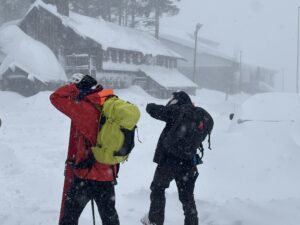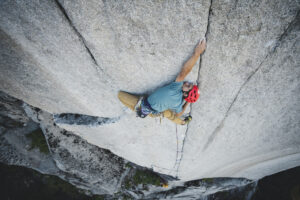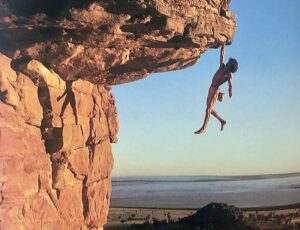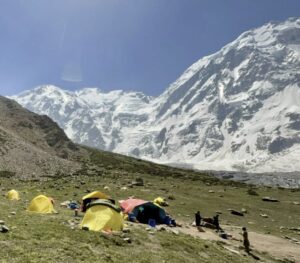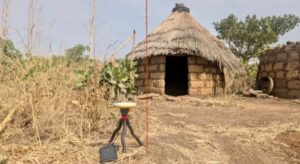Last week’s rescue of Wui Kin Chin on Annapurna has once again highlighted the darker side of commercial mountaineering in the Himalaya. Headlines have rightly praised the four-man rescue team, who risked their own safety by heading back up the mountain to lower Chin to a height suitable for helicopter evacuation. However, controversy over a potential delay in his rescue has also arisen.
In the early evening of April 23, while descending from the summit of Annapurna, Chin lost contact with his personal Sherpa Nima Tshering somewhere near the French Couloir at 7,750m. Dawa Sherpa of Seven Summit Treks, who manages logistics for Chin’s climb, suggests Chin was weak on the ascent and became unable to walk on the descent. Tshering said he gave Chin the rest of his oxygen, and on the way down to Camp 4 to raise help, he injured his spine, suffered frostbitten toes and showed symptoms of high altitude cerebral edema. In reference to this on social media, Nirmal Purja, who led the rescue, said that “not all information is true.”
Tshering eventually reached Camp 4 and Seven Summit Treks raised the alarm with Global Rescue, the medical evacuation company with which Chin had a membership. Note at this point that Global Rescue is not an insurance company but a membership-based field rescue service. Tshering is believed to have continued descending. This left Nirmal Purja, Don Bowie (a Canadian climber) and four other Sherpas — Gesman Tamang, Mingma David, Geljen and Halung Dorchi — at Camp 4.

Nima Tshering Sherpa, the Sherpa whom Wui Kin Chin chose as his guide, since they had climbed together on another 8,000m peak. Photo: THT
Purja said, “I held my team and some of the strongest members for the rescue of Dr. Chin at Camp 4. We were waiting for oxygen to get dropped off at us by helicopter so we could start searching. This is all the insurance company had to do, just drop six bottles of oxygen at Camp 4.”
The remaining climbers then decided to head down from Camp 4, says Purja. “I was told that the rescue company denied the emergency help and I couldn’t hold my team any longer at the extreme altitude, risking their life. I was the last man to leave Camp 4 and I had thought he was possibly dead.” In a company statement, Global Rescue said, “We are not involved in supplying any of the expeditions with oxygen, mountaineering supplies or logistical support. These responsibilities are borne by the expedition companies.”
The night of April 23, Chin was alone somewhere above 7,500m, without food, water or supplementary oxygen. Critically, his exact location was not known. At this point, Global Rescue say they could not begin a search flight after dark, and their contracted helicopter partners had stated that Chin’s location lay above the operating altitude of their aircraft, contravening flight regulations. They also stated that their services do not cover a search for missing climbers, just the rescue from a known location. Mingma Sherpa from Seven Summit Treks told ExWeb that they sent Global Rescue Chin’s last known location.
High altitude mountaineer and helicopter pilot Simone Moro told ExWeb, “What Global Rescue stated is perfectly correct. In Nepal, is impossible to fly a search-and-rescue mission at night. It is true that the maximal operating and certified altitude for the model As350 B3e (also called H125) is 7,000m. That is the maximum altitude where the manufacturing company and insurance guarantee the performance of the helicopter, and authorize the mission and reimbursement in case of an accident. I’ve personally flown much higher during another search-and-rescue mission but I knew I was taking all the risk (economical and technical). At that time, the helicopter was mine so I could decide to take those risks and potential loss.”

An AS350 B3. Photo: Airbus Helicopters
However, Mingma Sherpa told ExWeb that there was “too much bargaining for money” between Global Rescue and Simirik Air, the helicopter company eventually chartered for the rescue. Mingma suggests that they had asked Global Rescue to authorize payment to Simirik Air to allow Sherpas or oxygen to be dropped at Camp 4 to facilitate a search on foot. He went on to say that Global Rescue delayed the search for Chin by claiming that the flight was too risky and that they were exploring the possibility of a ground search, thereby delaying Seven Summit or Chin’s wife from organizing an alternative plan.
Global Rescue state that on the evening of the 23rd, they made contact with Chin’s next-of-kin to initiate a ground search, which would not involve dropping oxygen for climbers at Camp 4. With time clearly running out for Chin, his wife Thanaporn Lorchirachoonkul chartered Simirik Air to conduct a search on the morning of April 24.
As Purja woke the next morning he heard the Simirik Air helicopter taking off to search for Chin. Many no doubt expected it to find a lifeless body, if anything. But at around 08:00, pilots Bibek Khadka and Siddartha Jung Gurung spotted a speck among the vast sea of white snow, and miraculously the stricken climber waved to acknowledge the helicopter. The race to save Chin was now on.
Global Rescue say that a decision was made to continue using Simirik Air, with full authorization to drop a team of climbers at Camp 3 to begin a foot rescue. A team consisting of Nirmal Purja, Mingma David, Geljen and Gesman Tamang were then dropped at Camp 3 (6,500m) by longline. After five hours of climbing, they located Kin Chin at 17:30 at 7,500m. “The rescue was difficult,” Purja told ExWeb. “The wind was picking up, making the going harder. Chin was incredibly tired. As were we, after summiting 36 hours previously.”

Wui Kin Chin was found at 7,500m on Annapurna. Photo Mingma David Sherpa
Kin Chin was then lowered down to Camp 3 late on April 24 to await helicopter evacuation. The Malaysian’s condition had significantly deteriorated before he was evacuated by long line at 09:00 on April 25, after three failed attempts at a pick-up. Once at Base Camp, Global Rescue say that they “monitored and supported Dr. Chin’s care with an on-the-ground team deployed from the United States and Asia,” before he was flown to Mediciti Hospital in Kathmandu for treatment. On April 27, Chin was transferred to a Singapore Hospital via a private medical ambulance organized by Global Rescue, where he remains in a critical condition.
Nirmal Purja, Nima Tshering and representatives of Seven Summit Treks have publicly stated that they believe the “level of damage and risk to Kin Chin’s life may have been avoided, if the emergency rescue and insurance companies had acted quicker.”
However, there was clearly some confusion between the rescue team and Seven Summit Treks as to exactly what services Global Rescue provide. They do not provide search services, oxygen delivery, or insurance cover for search and rescue. They do provide field rescue for their members from a known location, assuming it is accessible. It seems clear that Global Rescue acted within their own terms and conditions, and the flight regulations, and therefore they were under no obligation to expedite Chin’s rescue, nor be held accountable for his immediate plight on the mountain.
There are a number of less than salubrious claims in Global Rescue’s statement. It is suggested that both they and Chin’s wife were asked for payment by Seven Summit Treks (we have contacted Chin’s wife for further comment, and Mingma Sherpa has told ExWeb this did not occur). Global Rescue points out that Seven Summit Treks were previously investigated and fined for involvement in the much publicized Nepalese rescue insurance scams. At the time, the company said they did file false claims, but only due to pressure from a network of individuals controlling the “rescue racket”. This isn’t the first time that Global Rescue and Seven Summits have clashed — see this piece for some backstory.

Wui Kin Chin receives attention at Annapurna Base Camp. Photo: Dawa Sherpa
While Wui Kin Chin fights for his life in the hospital, there remain unanswered questions that are arguably more pertinent than the exact details of the Malaysian’s rescue: Why did Chin continue to climb if he showed signs of fatigue? Should Nima Tshering have stopped him from pushing on? And considering that Chin was one of 31 climbers who summited Annapurna on April 23, why did the other climbers on the mountain that day not help?
The real story perhaps is not if Chin’s rescue was delayed, but why he came to find himself in a position that required rescue in the first place.
Relevant Links/Information
Abandoned Malaysian Climber in Critical Condition in Hospital
Full Statement from Global Rescue
Malaysian climber survived on my oxygen: Guide
In a telephone call on 30/04/19 Mingma Sherpa told ExWeb that he is willing to provide emails to support the claim that Global Rescue delayed the search for Chin, and that they sent Chin’s last known location to Global Rescue.

